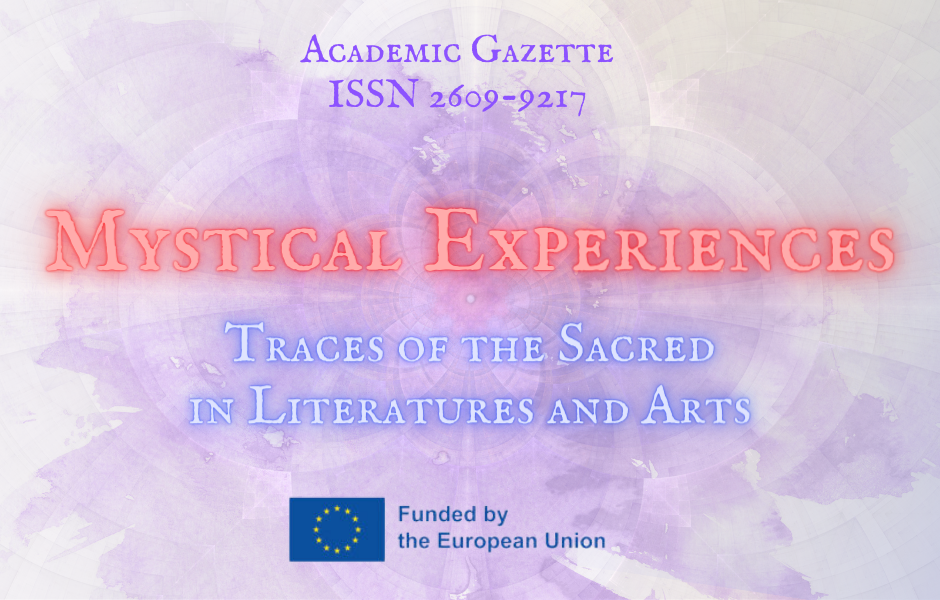
Mystical Experiences / Expériences mystiques
A project by
Fanny Arama, Grégory Jouanneau-Damance, and Riccardo Raimondo
Presentation
What can literary enunciations of mystical emotions tell us about the nature of language? Is “the mystical” really “inexpressible” (das Unaussprechliche) as Ludwig Wittgenstein stated ? Are emotions really set in a pre-verbal dimension? Or are they instead influenced and intrinsically “constructed” by language? Is it possible to imagine an emotion that is truly “unspeakable”, or is every emotion not only “speakable”, but also shaped by language and tradition? What is, in this context, the influence of the spiritual and mystical texts from previous centuries on contemporary mysticism? Can we imagine a personal relation with the Divine that is detached from any existing religion, traditional symbolism, gendered religious order, and canonical language? What can “mystical literature” teach us about our relation with mystery and what can we learn about our ways of representing the Absolute?
When it comes to mystical experiences, it is imperative to remember several specific historical and methodological issues. Indeed, the interpretations of the term “mystical” over time are polysemous, and this project only deals with one of these interpretations. The term “mystical” is most likely derived from the Greek verb muô (i.e. “closing the eyes or the lips”), and it is consequently related to the term mustèrion which refers to the notion of secrecy. In classical times, the application field of this term was thus identified with a specific category of religion, based on initiation and secret (the “Mysteries”), and the word designated the experience of the initiated when confronted by a transcendental mystery. Conversely, Christian authors in the Middle Ages employed the term “mystical” when referring to several different exegetical categories (e.g. the mystical meaning of texts, the mystical body of the Church, etc.). It is only since the Middle Ages that the word “mystical” has come to designate an intimate spiritual experience in the presence of the Divine that challenges the ability of language to describe the ineffable. Michel de Certeau (2013) notes that the term “mystical” began to signify differently in the 16th and 17th centuries: from then on, the adjective was employed not only to describe the spiritual experience of exceptional human beings such as John of the Cross or Teresa of Ávila, but also when referring to a literary genre.
Our research projects aim to adress this last aspect of the term “mystical”, thus avoiding approaching mysticism through the lens of its religious and communitarian dimension. The mystical experience is here considered from the standpoint of an individual experience that is simultaneously psychological, philosophical, and linguistic. Unlike previous works in the field, this project mainly insists on the dynamics of literary creation and on the relationship between human beings and language.
The originality of this project consists in its foundational oxymoron: investigating the connections between experience and language in the specific case of mystical literature, a literary genre dealing with the Unspeakable itself. The in-communicability of the mystical experience is a fruitful research field for developing new frameworks in the areas of comparative literature, religious studies, philosophy of emotions, philosophy of language, and theory of sensibility.
***
This project has received funding from the European Union’s Horizon 2020 research and innovation programme under the Marie Skłodowska-Curie grant agreement no. 101059916. This project has also received funding and support from the Ca’ Foscari University of Venice, University of Ottawa, Université Paris Cité, USPC (Université Sorbonne Paris Cité), and the CERILAC (Centre d’Études et de Recherches Interdisciplinaires de l’UFR Lettres, Arts, Cinéma, URP 441).
***
F. Arama, R. Raimondo, G. Jouanneau-Damance (dir.), Expériences mystiques. Énonciations, représentations et réécritures (Classiques Garnier, 2021) sur Fabula...